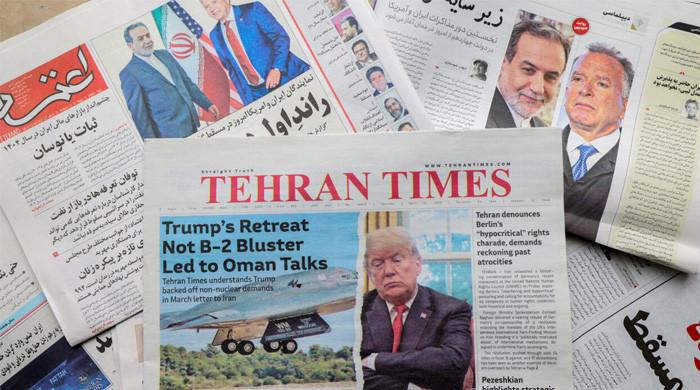Iran and US Engage in High-Level Nuclear Talks Amidst Tensions
- Highest-level nuclear talks between Iran and the US since the 2015 accord’s breakdown.
- Discussions are exclusively centered on the nuclear matter and the removal of sanctions.
- Another round of indirect talks has been scheduled for April 19.
Iran’s foreign ministry announced on Sunday that the forthcoming discussions with the United States next weekend will continue to be “indirect,” facilitated by Omani mediation, and will exclusively address the nuclear issue and the lifting of sanctions.
Abbas Araghchi, Iran’s Foreign Minister, and Steve Witkoff, the US Middle East envoy, convened in Muscat on Saturday. These talks represent the most significant Iran-US nuclear negotiations since the collapse of the 2015 agreement.
Both parties have consented to reconvene in seven days.
A spokesperson for the foreign ministry, Esmaeil Baqaei, stated that negotiations would persist on an indirect basis, with Oman continuing as the mediator. He also mentioned that the location for subsequent negotiations is under deliberation.
According to the spokesperson, the talks would solely revolve around “the nuclear issue and the lifting of sanctions,” and Iran “will not engage in any discussions with the American side on any other matter.”
Analysts had posited that the US would advocate for the inclusion of Iran’s ballistic missile program and Tehran’s backing of the “axis of resistance” in the discussions, which comprises a network of militant groups opposed to Israel.
However, Tehran has firmly asserted that it will only deliberate on its nuclear program.
In 2018, Donald Trump withdrew from the 2015 nuclear agreement between Iran and world powers during his tenure as US president.
The rare negotiations on Saturday transpired weeks after Trump dispatched a letter to Iran’s supreme leader, Ayatollah Ali Khamenei, urging nuclear discussions while cautioning against potential military action if Iran declines.
Both Iran and the US have independently characterized Saturday’s discussions as “constructive.”
Iran conveyed that the talks were conducted indirectly, with Oman’s foreign minister serving as an intermediary.
The negotiators, Araghchi and Witkoff, engaged in direct conversation for “a few minutes” following the talks, according to Iran’s foreign ministry.
Another round of discussions is slated for Saturday, April 19.
When queried about the talks, Trump remarked that he believed they were progressing adequately but emphasized that outcomes were paramount.
Omani Foreign Minister Badr Albusaidi affirmed that the process unfolded in a “friendly atmosphere.”
‘Turning point’
Despite reservations regarding Trump’s “maximum pressure” strategy, which involves escalating sanctions and repeated military threats, Tehran has acceded to the meetings.
On Sunday, Iranian media outlets largely hailed the rare talks as a “decisive turning point” in the relations between the two nations.
Iran’s conservative Javan daily commended the US for “not attempting to broaden the negotiations to encompass non-nuclear issues.”
The government-sponsored newspaper, Iran, depicted the discussions as “constructive and respectful,” quoting Araghchi.
Concurrently, the reformist Shargh newspaper heralded it as a “decisive turning point” in Iran-US relations.
The Kayhan newspaper, which had expressed skepticism in the days leading up to the talks, lamented Iran’s lack of a “plan B” and the absence of a “clear prospect for an agreement with Donald Trump.”
Nevertheless, it lauded the fact that the American side refrained from raising “the dismantling of nuclear facilities” and “the possibility of a military attack” during the discussions.
Tehran and Washington have not maintained diplomatic relations since shortly after Iran’s 1979 Islamic Revolution, which ousted the Western-backed shah.
Iran has been cautious about engaging in talks with the United States, frequently citing past experiences and eroded trust.
Following its withdrawal from the 2015 nuclear agreement, the Trump administration reinstated extensive economic sanctions against Iran.
Tehran initially adhered to the agreement for a year after Washington’s departure but subsequently initiated the rollback of its own commitments.
Iran has consistently refuted allegations of seeking to acquire nuclear weapons.



Comments (0)
No comments yet. Be the first to comment!
Leave a Comment